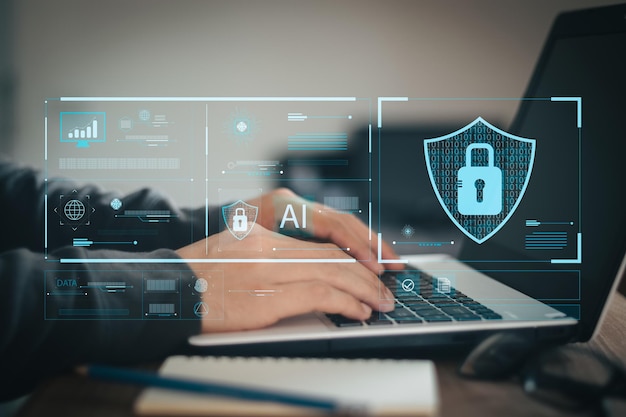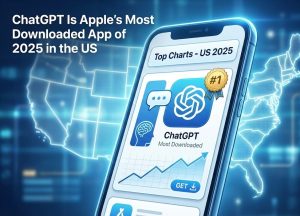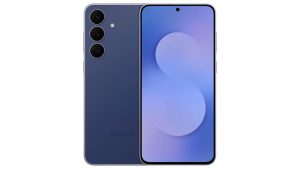As Nigeria’s digital economy expands, so does the intensity and complexity of cyber threats facing businesses and institutions. The Nigeria Cybersecurity Outlook 2025, presented by Deloitte Nigeria, uncovers critical trends, escalating risks, and strategic defenses to help organizations stay ahead of emerging threats.
From AI-powered attacks to regulatory compliance challenges, the cyber landscape in Nigeria is evolving rapidly and so must your security posture.
AI-Powered Attacks vs. AI-Driven Defenses: A Digital Arms Race
In 2024, Nigerian businesses witnessed a sharp rise in AI-enabled cyber threats. As cybercriminals increasingly automate attacks using artificial intelligence, organizations are urged to fight fire with fire — by deploying AI-powered defense mechanisms.
The Dual-Edge of AI in Cybersecurity:
- Cybercriminals leverage AI to launch smarter phishing campaigns, create deepfakes, and develop malware that adapts in real-time.
- Defenders use AI for early threat detection, behavioral analytics, and automated incident response.
This evolving battle is turning into a cybersecurity arms race. By 2025, the success of Nigerian organizations will depend on how effectively they integrate AI into their cybersecurity strategies to counter equally intelligent threats.
With economic uncertainty in 2025, Nigerian companies face increased scrutiny over cybersecurity spending. Leaders must strike a balance between cost-effectiveness and compliance, ensuring they don’t compromise on critical protections while adhering to local cybersecurity regulations.
Smart security investments such as scalable cloud-based threat detection and managed security services will become essential for survival.
Third-Party Risk Still a Major Vulnerability
As businesses expand through partnerships and digital vendors, third-party risk has become a glaring weakness. Deloitte’s report emphasizes the need for stricter vendor risk management protocols, including:
- Routine audits
- Cybersecurity clauses in contracts
- Real-time monitoring of partner systems
Neglecting vendor security could mean opening the door to costly breaches.
With Nigeria’s Data Protection Act gaining teeth, 2025 will see a surge in compliance audits and enforcement actions. Businesses are expected to:
- Update data privacy frameworks
- Secure user data across platforms
- Train employees on regulatory obligations
Failure to comply could lead to steep penalties and reputational damage.
The boom in digital banking and e-commerce is also fueling identity theft and financial fraud. Deloitte’s forecast warns that fraud detection systems, biometric verification, and real-time transaction monitoring will be crucial to protect consumers and businesses.
As cyberattacks grow more destructive and expensive, Nigerian firms are embracing cybersecurity insurance. These policies will help mitigate financial losses tied to:
- Data breaches
- Ransomware attacks
- Regulatory fines
- Operational downtime
By 2025, cyber insurance is no longer optional it’s a critical component of risk management.
The Threat of Misinformation and Deepfakes via Gen AI
Generative AI has unlocked a new frontier of threats. Deloitte highlights the growing use of AI-generated misinformation, deepfake videos, and manipulated audio to deceive, defraud, or disrupt.
These tactics could impact:
- Reputation management
- Election security
- Public trust in media and businesses
Early detection tools, digital watermarking, and content verification strategies are essential to combat AI-driven misinformation campaigns.
The Cybersecurity Brain Drain: A Call to Build Local Talent
Nigeria is losing cybersecurity professionals to global markets. The cyber talent drain is real and it’s pushing businesses to invest in homegrown talent. Deloitte urges organizations to:
- Develop internal cybersecurity academies
- Partner with universities
- Offer certifications and training programs
Building a resilient cybersecurity workforce starts with nurturing local skills.
The Nigeria Cybersecurity Outlook 2025 paints a clear picture cyber threats are escalating, but so are the tools to fight them. To stay secure, Nigerian businesses must:
- Embrace AI-driven defense strategies
- Invest in cyber resilience
- Strengthen compliance frameworks
- Protect data and digital assets with cyber insurance
- Build internal cybersecurity capabilities
Deloitte Nigeria remains a trusted partner for businesses navigating the ever-evolving cyber landscape. With cutting-edge insights and tailored cybersecurity solutions











